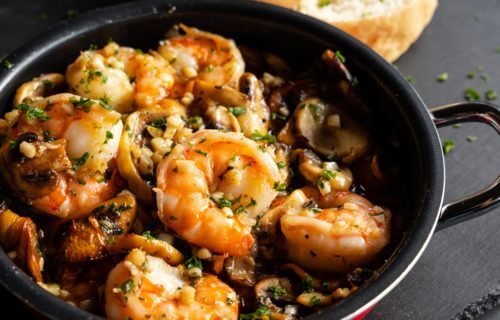WASHINGTON — Are you allergic to shrimp or other shellfish? There may be a way you can enjoy the crustaceans without breaking out in hives. Researchers have discovered a method that can produce less-allergenic shrimp, potentially allowing people with seafood allergies to enjoy them without severe reactions. It’s called reverse-pressure sterilization, and it uses high pressure and steam to make the food more tolerable.
Allergies to common foods like dairy, wheat, peanuts, and seafood occur when the immune system mistakenly identifies certain proteins as threats and triggers a response against them. Heating these proteins can alter or degrade them, potentially making the food safer for allergy sufferers to consume. However, studies on shellfish, including oysters, have shown mixed results, with some indicating increased allergenicity after cooking and others suggesting a decrease.
The researchers divided samples of shrimp into three groups: raw, roasted, and roasted with reverse-pressure sterilization. Each food group was mashed into a paste and fed to mice with shrimp allergies. Study results reveal that both raw and roasted shrimp caused similar reactions, indicating that roasting alone did not significantly alter the proteins. However, the group treated with reverse-pressure sterilization showed milder reactions and less organ damage.

Upon closer examination of the allergen proteins, the team found that roasting changed their shape but did not prevent antibody binding. In contrast, reverse-pressure sterilization caused the proteins to cluster together, making it difficult for antibodies to attach, thereby preventing severe allergic reactions. This innovative method effectively reduced the allergenicity of shrimp while shedding light on the protein changes that led to this outcome.
The study is published in the Journal of Agricultural and Food Chemistry.
You might also be interested in:
- Best Ways To Cook Shrimp: Top 5 Methods Most Recommended By Culinary Experts
- Extra shrimp please! Seafood packed with omega-3 fatty acids lowers risk of kidney disease
- Feeling ill? 42% of Americans have self-diagnosed themselves with food allergy or intolerance

